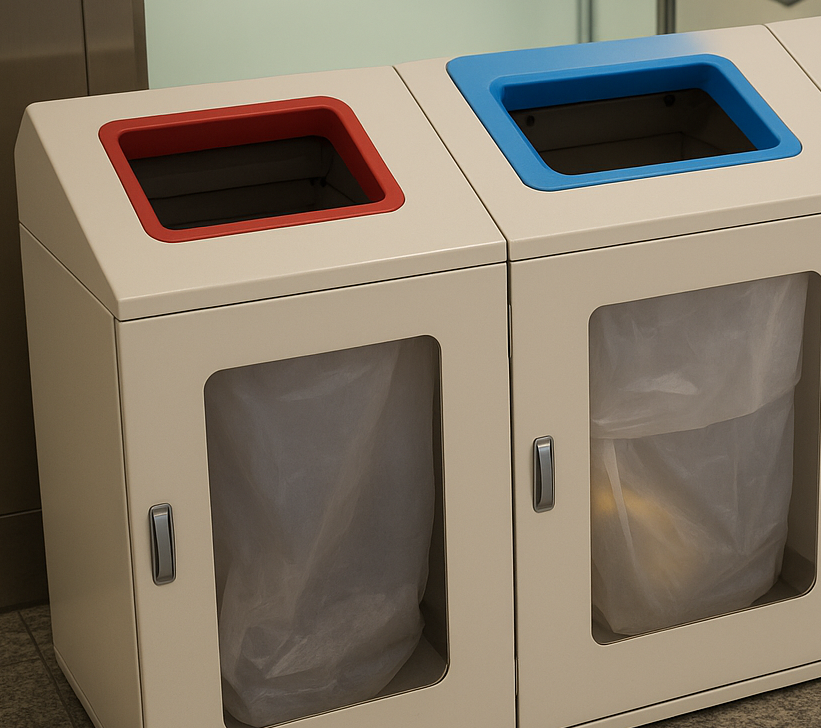
Japan is famous for being clean—but where are all the trash cans?
If you’re visiting Japan for the first time, you’ll likely notice how tidy the streets are despite the surprising lack of public garbage bins. This can be confusing for tourists, especially when you’re walking around with a drink cup or snack wrapper.
In this guide, we’ll explain how trash and recycling work in Japan, and how you can handle your waste properly while traveling.
♻️ Why Are Trash Bins So Rare in Japan?
After a terrorist attack in the 1990s involving a trash bin, most public garbage cans were removed for safety. Since then, Japan has relied heavily on “take your trash home” culture. People carry their garbage with them until they find the right place to dispose of it.
🧃 Common Trash Types and How to Sort Them
While trash rules vary slightly by region, most places follow a similar system. Here are the main categories:
- Burnable (Combustible): paper, tissues, food waste, small wood items
- Non-burnable (Non-combustible): metals, glass, broken ceramics
- Plastic (プラ): food containers, packaging with the “プラ” mark
- PET bottles: separate from other plastics; often with caps and labels removed
- Cans and Bottles: aluminum, glass—recycled separately
In your hotel, you’ll usually see labeled bins. At convenience stores, you may find separate bins for “bottles,” “cans,” “plastics,” and “others.” When in doubt, watch what others do or ask politely.
🏨 What to Do as a Tourist
Here are some practical tips for handling your trash:
- Carry a small plastic bag with you—use it as your portable trash bin
- Use convenience store bins (e.g., 7-Eleven, FamilyMart, Lawson) responsibly
- Separate when you can, but don’t stress too much—locals understand it’s tricky
- Ask at your accommodation if you have something unusual to throw away (like batteries)
🚯 What Not to Do
- Don’t throw trash into random street corners or temple grounds
- Don’t combine recyclables with regular trash at convenience stores
- Don’t leave trash on trains or at your seat in restaurants
🧼 Why This Matters
Recycling and trash separation are important parts of Japan’s environmental efforts. By following the rules—even just a little—you’re showing respect for local culture and helping keep Japan beautiful for everyone.
Even if it takes some getting used to, carrying your trash for a while is part of the authentic Japan experience! 🌏